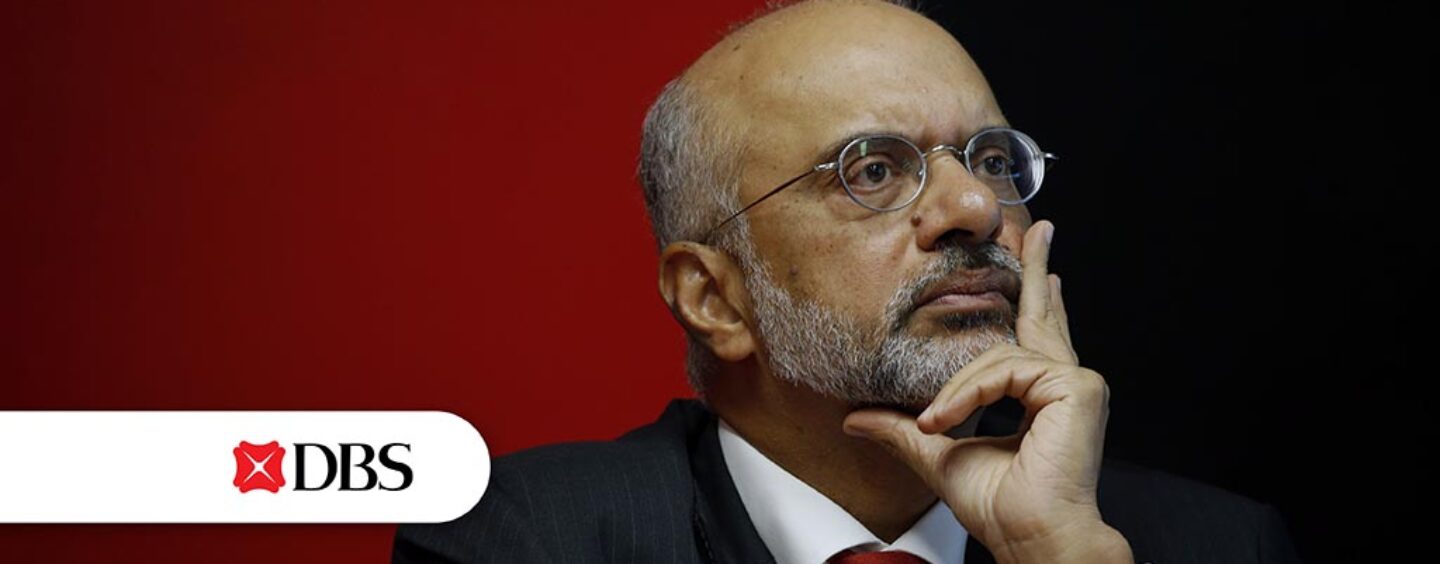DBS Bank, one of Singapore’s largest financial institutions, is facing an unexpected year of technical challenges in 2023.
While digital banking has positioned itself as a convenient and efficient alternative to traditional banking methods, it’s not without its pitfalls. The bank’s experiences this year underscored the vulnerabilities that even the most modernised banks can encounter.
These disruptions inconvenienced customers and raised concerns about the bank’s ability to maintain a reliable and secure digital banking infrastructure.
Chronicle of disruptions
DBS’s online banking and payment services disruptions in 2023 were not isolated incidents. Instead, they formed a disturbing pattern, occurring repeatedly throughout the year.
This series of disruptions raised eyebrows and led to questions about the bank’s ability to ensure a reliable and secure digital banking experience for its customers.
The First Incident: March 29, 2023
The year began with a significant disruption on March 29, 2023, when DBS digital services were down most of the day. Customers attempting to access the DBS Digibank app were met with “Reset pin” prompts, and log-in attempts to DBS PayLah! also yielded a “Service unavailable” notice. This disruption persisted from around 8.30 AM to 5.30 PM.
DBS attributed this incident to “inherent software bugs,” a cause that raised concerns about the bank’s software quality assurance and testing processes. The outage left customers frustrated and unable to access essential banking services.
The Second Incident: May 5, 2023
Shortly after the March disruption, another outage occurred on May 5, 2023. From around noon till 3.10 PM, DBS customers faced problems accessing banking and payment services, including mobile apps, websites, and ATMs.
Initially, the DBS PayLah! App cited high log-in volumes due to its “5 Million Hawker Meals” programme, which offered rebates for hawker meal purchases on Fridays. However, a spokesperson later clarified that the disruption was unrelated to this programme or the March 29 incident.
The Monetary Authority of Singapore (MAS) imposed an additional capital requirement on DBS in response to this outage, amounting to approximately S$1.6 billion. The regulatory authority was dissatisfied with the bank’s handling of the situation.
The Third Incident: September 26, 2023
On September 26, 2023, DBS customers faced issues making PayNow and Fast and Secure Transfers (Fast) transactions from 3.00 PM to 4.30 PM. Some customers had their transactions pending until September 29, causing confusion between merchants and customers.
MAS took a proactive stance, directing DBS to conduct a thorough investigation into the incident and its handling of affected customers and transactions. These repeated disruptions began to erode trust in the bank’s digital services.
The Fourth Incident: October 14, 2023
The most significant disruption occurred on October 14, 2023, when DBS and Citibank customers faced issues accessing banking services hosted out of an Equinix data centre. During a planned system upgrade, the data centre’s chilled-water system faced a technical problem, leading to overheating and affecting tenants’ operations, including DBS.
This outage lasted from Saturday afternoon to early Sunday morning, impacting services such as ATMs, mobile apps, and websites. It left customers stranded and outraged, unable to make payments or access essential banking services.
The Fifth Incident: October 20, 2023
Less than a week after the previous outage, on October 20, 2023, DBS customers once again reported issues accessing the PayLah! app. The bank acknowledged the problem, stating that access to the app was intermittent.
This latest disruption added to the growing frustration of customers and further highlighted DBS’s struggles to maintain a stable digital banking platform.
Decoding the underlying factors and regulatory implications
Probing deeper into these disruptions reveals multifaceted causes. The system’s inability to handle a surge in user traffic emerged as a recurrent theme. Coupled with this, coding mishaps and complications arising from system upgrades were repeatedly implicated.
The regulatory body, MAS, adopting a no-nonsense stance, emphasised swift corrective action. By October 19, MAS explicitly articulated its intention to pursue “appropriate supervisory action”, setting a benchmark for recovery timelines – no more than four hours post-disruption.
This stern approach wasn’t arbitrary. DBS’s disruptions’ consistent and elongated nature raised serious alarms, paving the way for intensified regulatory intervention.
Regulatory responses of this nature aren’t novel. A case in point: a two-day service interruption in November 2021 compelled DBS to set aside an additional S$930 million in regulatory capital. With a growing dossier of service hiccups stretching over the years, 2023 became the tipping point.
MAS intervened, directing a six-month hiatus on DBS’s non-essential IT modifications. Additionally, directives were issued, preventing DBS Bank from branching into new business sectors and mandating the maintenance of its existing branch and ATM network.
DBS’s reaction was a comprehensive technology resilience roadmap. This plan, emphasising fortifying the strength and reliability of its digital banking platforms, received MAS’s approval. Nonetheless, the regulatory body retained the heightened capital requirements, signalling possible future interventions contingent on progress assessments.
DBS’s proactive response and the path ahead
In the wake of these challenges, DBS Bank exhibited commendable accountability. High-ranking officials, spearheaded by Chief Executive Officer Piyush Gupta, publicly acknowledged the lapses and highlighted the bank’s unwavering resolve to enhance its technological resilience.
Many industry pundits perceived MAS’s decision to refrain from levying fines as a tacit acknowledgement of DBS’s forthright approach. Demonstrating their commitment, DBS allocated a substantial S$80 million to augment system resilience, reinforcing their dedication to consistent service provision.
Yet, the future is intricate. DBS’s ambitions of expansion and overarching system overhaul require strategic balancing. Added to this mix are internal organisational shifts, notably the hunt for a new Chief Information Officer.
These dynamic elements make the bank’s journey to redemption intricate but not impossible. With a laser-focused strategy and unwavering dedication to service quality, DBS Bank stands poised to reaffirm its position as a leading, reliable financial powerhouse.
- SEO Powered Content & PR Distribution. Get Amplified Today.
- PlatoData.Network Vertical Generative Ai. Empower Yourself. Access Here.
- PlatoAiStream. Web3 Intelligence. Knowledge Amplified. Access Here.
- PlatoESG. Carbon, CleanTech, Energy, Environment, Solar, Waste Management. Access Here.
- PlatoHealth. Biotech and Clinical Trials Intelligence. Access Here.
- Source: https://fintechnews.sg/79714/fintech/how-will-dbs-bank-reclaim-trust-after-service-interruptions/
- :has
- :is
- :not
- 1
- 10
- 14
- 19
- 20
- 2021
- 2023
- 26%
- 29
- 30
- 7
- 8
- a
- ability
- About
- access
- accessing
- accountability
- acknowledged
- Action
- added
- Additional
- Additionally
- affected
- affecting
- After
- AI
- allocated
- also
- alternative
- am
- ambitions
- an
- and
- Another
- app
- approach
- approval
- approximately
- apps
- ARE
- around
- AS
- aside
- assessments
- assurance
- ATM
- ATMs
- attempting
- Attempts
- augment
- author
- authority
- balancing
- Bank
- Banking
- Banks
- became
- began
- begin
- Benchmark
- between
- Billion
- body
- Branch
- bugs
- business
- but
- by
- CAN
- capital
- capital requirements
- caps
- case
- Cause
- causes
- causing
- centre
- challenges
- chief
- Chief Executive
- chief executive officer
- cited
- Citibank
- clarified
- Coding
- commendable
- commitment
- compelled
- comprehensive
- Concerns
- Conduct
- confusion
- consistent
- content
- Convenient
- coupled
- Customers
- data
- day
- DBS
- DBS Bank
- decision
- dedication
- deeper
- demonstrating
- digital
- digital banking
- digital services
- directing
- directives
- Disruption
- disruptions
- down
- due
- during
- dynamic
- Early
- efficient
- elements
- emerged
- end
- enhance
- ensure
- equinix
- essential
- Even
- executive
- Executive Officer
- existing
- expansion
- experience
- Experiences
- explicitly
- faced
- facing
- factors
- FAST
- financial
- Financial institutions
- fines
- fintech
- First
- For
- form
- formed
- four
- Fourth
- Fridays
- from
- frustrated
- frustration
- further
- future
- Growing
- had
- handle
- Handling
- heightened
- High
- Highlighted
- hosted
- hottest
- HOURS
- How
- However
- HTTPS
- hunt
- impacting
- impossible
- in
- inability
- incident
- Including
- industry
- information
- Infrastructure
- instead
- institutions
- Intention
- internal
- intervention
- interventions
- into
- investigation
- isolated
- Issued
- issues
- IT
- ITS
- itself
- journey
- jpg
- largest
- later
- latest
- leading
- Led
- left
- mailchimp
- maintain
- maintenance
- make
- Making
- mandating
- March
- MAS
- max-width
- May..
- Merchants
- met
- methods
- million
- mix
- Mobile
- mobile-apps
- Modifications
- Monetary
- monetary authority
- Monetary Authority of Singapore
- Monetary Authority of Singapore (MAS)
- Month
- more
- Morning
- most
- multifaceted
- Nature
- network
- New
- new Chief
- news
- no
- notably
- Notice..
- novel
- November
- November 2021
- occurred
- occurring
- october
- of
- offered
- Officer
- officials
- on
- once
- ONE
- online
- online banking
- Operations
- or
- out
- outage
- over
- overarching
- path
- Pattern
- Paving
- payment
- Payment Services
- payments
- PayNow
- pending
- perceived
- plan
- planned
- platform
- Platforms
- plato
- Plato Data Intelligence
- PlatoData
- pm
- Point
- poised
- position
- positioned
- possible
- Posts
- powerhouse
- preventing
- previous
- Proactive
- Problem
- problems
- processes
- programme
- Progress
- provision
- publicly
- purchases
- pursue
- quality
- Questions
- raised
- reaction
- rebates
- received
- recovery
- redemption
- regulatory
- reliability
- reliable
- repeated
- REPEATEDLY
- Reported
- require
- requirement
- Requirements
- resilience
- resolve
- response
- responses
- Reveals
- roadmap
- saturday
- Second
- Sectors
- secure
- September
- Series
- serious
- service
- Services
- set
- setting
- Shifts
- significant
- Singapore
- Singapore’s
- situation
- Software
- some
- spearheaded
- spokesperson
- stable
- stance
- stands
- stating
- Strategy
- strength
- Struggles
- such
- sunday
- surge
- SWIFT
- system
- Technical
- technological
- Technology
- Testing
- than
- that
- The
- The Future
- their
- theme
- These
- they
- Third
- this
- this year
- throughout
- till
- timelines
- Tipping point
- to
- took
- traditional
- traditional banking
- traffic
- Transactions
- transfers
- Trust
- unable
- underlying
- Unexpected
- until
- unwavering
- upgrade
- upgrades
- User
- volumes
- Vulnerabilities
- Wake
- was
- Way..
- websites
- week
- were
- when
- which
- will
- with
- without
- year
- years
- yielded
- Your
- zephyrnet
















